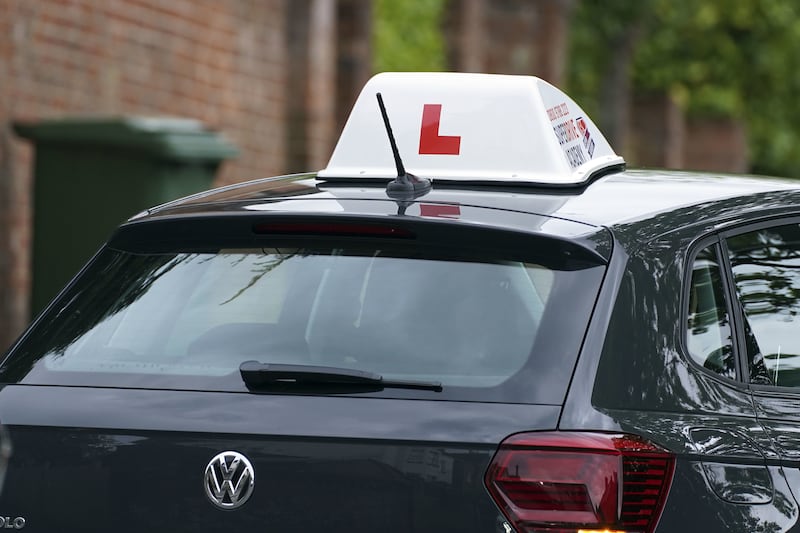Stricter rules for learner and newly qualified drivers will be introduced, eight years after legislation was passed providing a framework for the new licensing scheme.
Learner drivers will have to spend six months training, keep a log book and those who have passed their test could spend two years with restricted plates.
The new scheme will remove the 45mph upper limit for learner and newly qualified drivers and also allow for learning and driving on motorways.

The aim of the graduated driver licensing (GDL) scheme is to cut the number of people killed or seriously injured in crashes where younger people were found to be responsible. The timeline for the introduction of the new rules has not yet been established.
Between 2018 and 2022, drivers aged 17-23 were deemed responsible for 22% of all fatal or serious injury collisions despite making up eight percent of licence holders.
In total, 159 people were killed or seriously injured over the period where a vehicle driver aged 17 to 23 was to blame, according to figures from the Northern Ireland Statistics and Research Agency (NISRA).
Plans for the new rules for learner and newly qualified drivers have been years in the making following the passing of the 2016 Road Traffic Act that provides the statutory framework for the introduction of the GDL.
A consultation period ended in early 2018 while the scheme was initially set to be introduced for drivers in 2020.
“Following extensive consultation, a suite of subordinate legislation is being developed to take forward the GDL proposals,” Infrastructure Minister John O’Dowd said in a written Assembly answer.

Under the scheme, there will be a mandatory minimum learning period of six months, the removal of the 45 mph speed restriction and allow for some motorway training.
A programme for training and learner logbook will be introduced as will passenger restrictions on new drivers along with the increase in the R plate period from its current one year to an unspecified time but possibly two years in line with previous recommendations.

Under initial plans, it was proposed to introduce a limit on young passengers being carried by drivers under the age of 24 for the first six months after they pass their test.
Only one person aged 14 to 20 will be allowed on board between 11pm and 6am, unless they are immediate family members or an experienced driver aged at least 21 is also a front-seat passenger, the original GDL scheme proposed.
In his written answer, Mr O’Dowd said: “It is recognised that the cornerstone of any improvement in driving standards is the learning process and the mandatory minimum learning period, the programme of training and the use of a logbook are aimed at changing the current mind-set when considering or learning how to drive.
“For this approach to be effective, it must be supported by a form of assessment that covers the full range of knowledge, understanding, skills and behaviours required to drive safely.
“I have asked my officials for an update on the GDL programme, and the potential timeline for full implementation.”
Newry and Armagh MLA Justin McNulty, who tabled the question, said its genesis was meeting students from local secondary schools as partsof the Politics in Action programme during which the issue of road safety was raised.
“It is positive the minister sees value in the concept and I think everyone would be supportive of adopting a sensible approach that led to fewer fatalities on the road,” Mr McNulty said.








